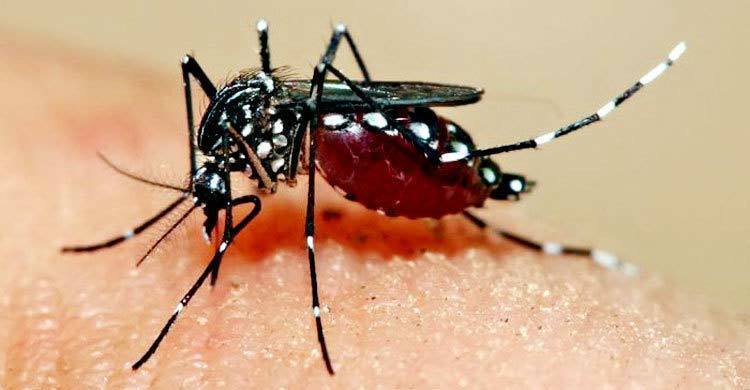Dengue: More people infected than ever before in a calendar year

Although outbreak of dengue is common during every monsoon since 2000, the year it first became an epidemic, this year the situation has taken a severe turn as the mosquito-borne disease has already infected more people than ever before in a calendar year, and claimed nine lives to boot, reports UNB.
The rate of infection however, does not necessarily mean it is more fatal. The overwhelming majority of dengue cases can in fact be treated at home.
Besides infecting more and more people in the capital on a daily basis, this year has also witnessed an increased tendency on the part of the virus to spread outside Dhaka.
Dhaka South City Corporation (DSCC) Mayor Sayeed Khokon on Friday said the prevalence of dengue virus in Dhaka “cannot yet be called an epidemic”, but that is hardly backed up by the number of patients infected by dengue at different government and private hospitals.
Official figures show that 10,528 people have been infected with dengue between January 1 and Thursday. Previously the highest number of people infected in a single year was 10,148 in 2018. Many hospitals outside the capital have also reported dengue cases.
Visiting different hospitals, the UNB correspondents found doctors struggling to handle the rising number of dengue patients and huge numbers of people with fever rushing to hospitals for dengue test.
Sales of anti-mosquito sprays and mosquito nets have been on the rise as panic gripped the city dwellers following the outbreak of the deadly disease.
Shakhawat Hossain, a media worker, found his nine-year-old son suffering from fever when he went home after office on the night of July 18. The fever turned severe overnight.
A doctor suggested he admit his son to a hospital immediately as he was found infected by dengue next morning and then the struggle began, Shakhawat narrated.
Most hospitals lacked empty beds but somehow Shakhawat managed one at a government hospital.
Saleh Uddin Jinnah, a teacher by profession, sent his son Mukul to a private university for higher education in the capital.
On June 24, Jinnah got worried hearing that his son was lying senseless at his university hostel and rushed to the capital immediately.
In the meantime, Mukul’s friends admitted him to a government hospital.
“Tension, blood collection hazards and hospital expense made me mad at that time,” he said.
The worsening dengue situation with 600 patients’ admission to hospitals daily has created panic among the city-dwellers.
Meanwhile, Road Transport and Bridges Minister Obaidul Quader on Friday validated the fear by saying that there is no scope to take dengue lightly.
The High Court on July 25 dubbed the existing dengue scenario in the country worrying. “Why isn’t the medicine (to exterminate mosquitoes) working?” the court asked, noting that the people are terrified.
Sayeed Khokon, Mayor, Dhaka South City Corporation (DSCC) on July 20 urged city dwellers to remain alert and not to be panic, claiming that the dengue prevalence in Bangladesh is under control compared to other countries like the Philippines, Thailand and Indonesia.
Md Atiqul Islam, Mayor, Dhaka North City Corporation (DNCC), on Friday offered free dengue tests at 52 health centres from Monday. Anyone can get the health centres’ location by calling the control room at 01932665544.
Suhrawardy Medical College Hospital Assistant Prof Dr Mostafizur Rahman told UNB that he does not suggest all dengue patients get admitted to hospitals.
“Only 10 percent patients require hospitalisation and rest can be treated at home,“ Dr Mostafizur added.
According to the World Health Organization, dengue fever is a mosquito-borne tropical disease caused by the dengue virus, which is transmitted by female mosquitoes mainly of the species Aedes aegypti. Symptoms typically begin three to fourteen days after infection. This may include a high fever, headache, vomiting, muscle and joint pains, and a characteristic skin rash. Up to this point the fever can generally be treated at home.
In a small proportion of cases, the disease develops into severe dengue, also known as dengue haemorrhagic fever, resulting in bleeding, low levels of blood platelets and blood plasma leakage. These are the cases that require hospitalisation, in line with Dr Mostafizur’s advice.
Directorate General of Health Services control room’s deputy director Dr Ayesha Akhter admitted that they are failing to provide the exact number of dengue patients due to inadequate information flow about dengue infection from outside the capital.



